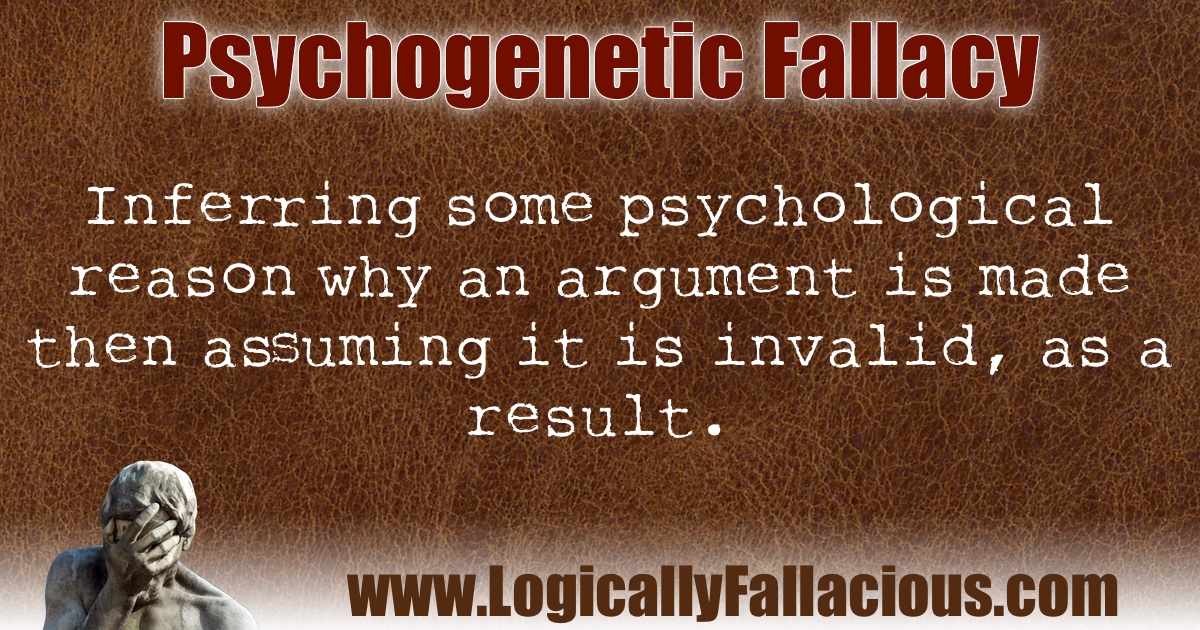Description: Inferring some psychological reason why an argument is made then assuming it is invalid, as a result.
Logical Form:
Person 1 makes argument X.
Person 1 made argument X because of the psychological reason Y.
Therefore, X is not true.
Example #1:
George: Man, those girls are smokin' hot!
Derek: No, they're not. You're a victim of the cheerleader effect. When girls are together in a group, each girl looks a lot better than if you were to see her without the other girls.
Explanation: Besides the fact that "smokin' hot" is a subjective evaluation, meaning that the girls could be hot to George but not Derek, Derek is assuming George's evaluation is wrong because of the psychological effect known as the cheerleader effect.
Example #2:
Lucas: I remember when I was about three years old my mother saved me from almost being eaten by a shark.
Katie: I doubt that. What you are experiencing is what cognitive psychologists refer to as a "false memory."
Explanation: There are two problems here that make Katie guilty of fallacious reasoning. First, she is assuming Lucas' story is not true because of a false memory. Second, she is phrasing this objection with unwarranted confidence.
Exception: The more extraordinary the argument or claim, the more reasonable it is to assume a psychological effect is involved. However, even in the most extraordinary of claims, the effect should only be proposed, not assumed.
Marge: Last night in bed, aliens visited me. They paralyzed me for about 30 seconds while they stood over me, then they disappeared right in front of my eyes while I regained the ability to move and speak.
Kristine: That sounds like a classic case of what is called a hypnogogic hallucination with sleep paralysis. It is a dream-like state where you are not quite sleeping or awake. Your brain shuts down your ability to move and talk while you are unconscious during a normal sleep cycle, but in the case of sleep paralysis, you retain consciousness—but only for a brief time. So the odds are, you weren't really visited by aliens.
Fun Fact: As video recorders on cell phones became more ubiquitous, reports of alien encounters have dropped considerably.

References:
Segal, R. A. (1980). The social sciences and the truth of religious belief. Journal of the American Academy of Religion, 403–413.
Questions about this fallacy? Ask our community!
Listen to the Dr. Bo Show!
Hello! I am social psychologist and author, Bo Bennett. In this podcast, I take a critical thinking-, reason-, and science-based approach to issues that matter. As of January 2020, this podcast is a collection of topics related to all of my books. Subscribe today and enjoy!

